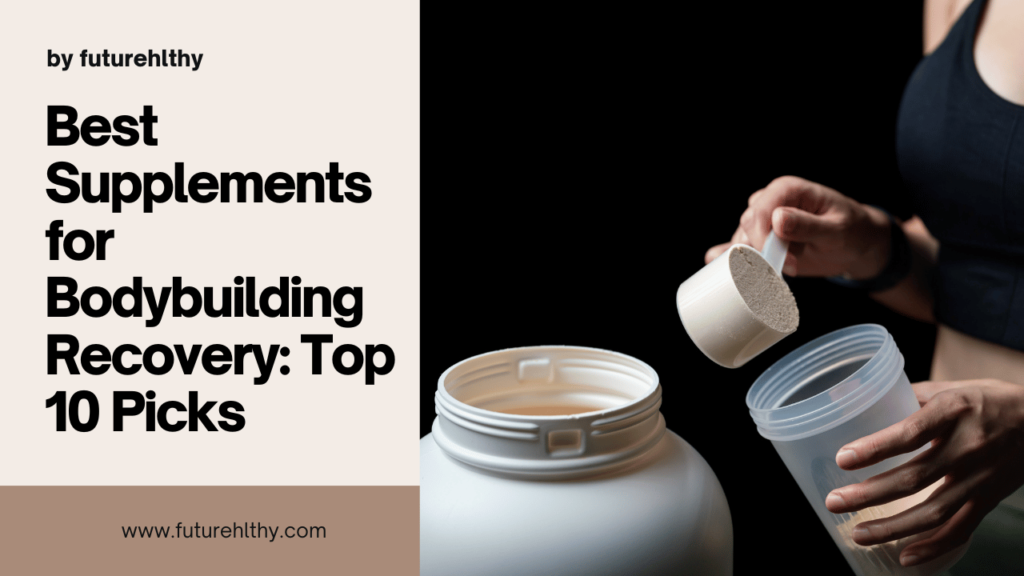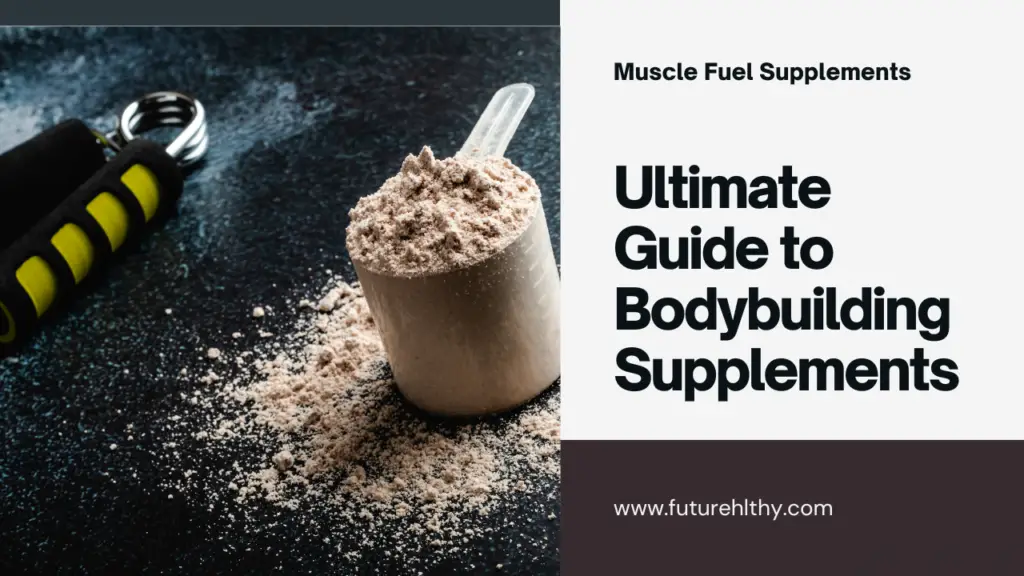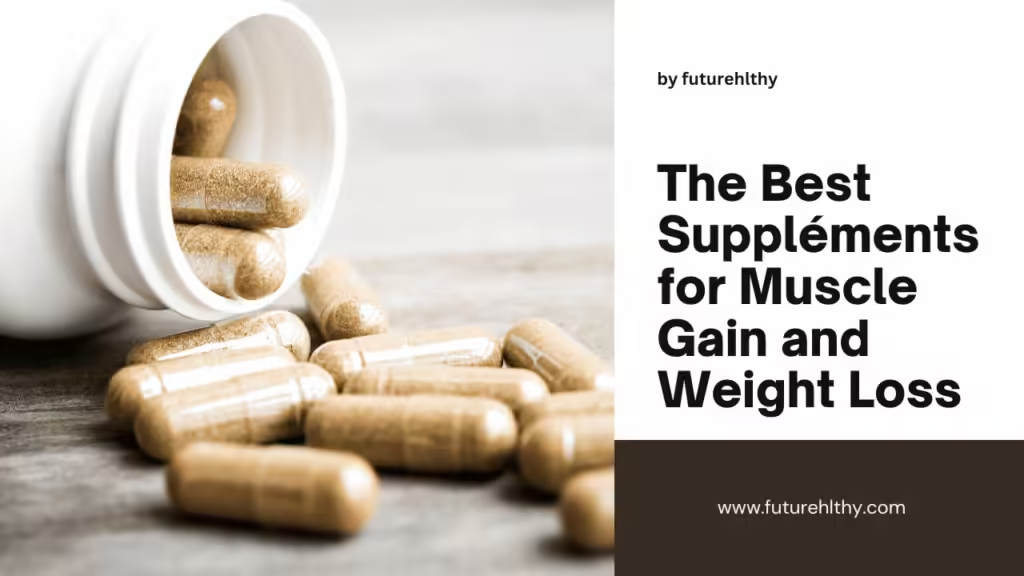Best Supplements for Bodybuilding Recovery: Top 10 Picks

In bodybuilding, the difference between an average physique and an extraordinary one often boils down to recovery. After intense workouts, your muscles need time and the right nutrients to repair and grow. Supplements can play a crucial role in this recovery process by reducing muscle soreness, improving repair, and enhancing overall performance. This article delves into the top 10 supplements for bodybuilding recovery, offering comprehensive insights into their benefits, recommended dosages, and scientific evidence supporting their use.
1. Whey Protein
What It Is: Whey protein is a high-quality protein derived from milk during the cheese-making process. It is known for its fast absorption rate and rich amino acid profile.
Benefits: Whey protein supports muscle repair and growth by providing essential amino acids necessary for protein synthesis. It also helps in reducing muscle soreness and accelerating recovery after intense workouts. The rapid digestion and absorption of whey protein make it an ideal post-workout supplement.
Dosage: The recommended dosage is 20-30 grams per serving, typically consumed post-workout. It can also be used as a meal replacement or supplement to meet daily protein needs.
Scientific Backing: Multiple studies have demonstrated that whey protein enhances muscle recovery and growth more effectively compared to other protein sources. For instance, research published in the Journal of the International Society of Sports Nutrition highlights the superior effects of whey protein on muscle protein synthesis and recovery (Journal of the International Society of Sports Nutrition).
2. BCAAs (Branched-Chain Amino Acids)
What They Are: BCAAs consist of three essential amino acids—leucine, isoleucine, and valine. These amino acids play a vital role in muscle protein synthesis and energy production.
Benefits: BCAAs are known to reduce muscle fatigue, decrease muscle breakdown, and promote faster recovery. They provide a direct energy source to muscles during exercise, helping to prevent catabolism and enhance overall workout performance.
Dosage: The typical dosage is 5-10 grams before or after workouts. BCAAs can also be taken during exercise for prolonged benefits.
Scientific Backing: Studies suggest that BCAAs are effective in reducing muscle soreness and damage while improving exercise performance. A study in Nutrition & Metabolism indicates that BCAA supplementation significantly decreases muscle damage and soreness (Nutrition & Metabolism).
3. Creatine Monohydrate
What It Is: Creatine monohydrate is a well-researched compound that increases the production of ATP (adenosine triphosphate), which is essential for energy during high-intensity exercise.
Benefits: Creatine enhances muscle strength, accelerates recovery, and promotes muscle growth. By replenishing ATP levels, creatine allows for more effective workouts and faster recovery between sets.
Dosage: The standard dosage is 5 grams daily. It is commonly taken post-workout, but it can also be consumed before workouts for performance benefits.
Scientific Backing: Creatine is one of the most researched supplements, with numerous studies confirming its effectiveness. According to research published in the Journal of Strength and Conditioning Research, creatine supplementation improves strength, muscle mass, and recovery (Journal of Strength and Conditioning Research).
4. Glutamine
What It Is: Glutamine is an amino acid that is abundant in the muscles and plays a critical role in protein synthesis and immune system function.
Benefits: Glutamine helps reduce muscle soreness, improve recovery, and support immune health. It is particularly useful during periods of intense training or when recovering from injury, as it aids in preventing muscle breakdown and supports overall muscle health.
Dosage: The recommended dosage is 5-10 grams post-workout or before bedtime to maximize its recovery benefits.
Scientific Backing: Research published in the American Journal of Clinical Nutrition demonstrates that glutamine supplementation can enhance recovery and reduce muscle soreness, particularly in athletes undergoing heavy training (American Journal of Clinical Nutrition).
5. Omega-3 Fatty Acids
What They Are: Omega-3 fatty acids are essential fats found in fish oil and certain plant sources like flaxseed and chia seeds. They are known for their anti-inflammatory properties.
Benefits: Omega-3s help reduce muscle inflammation and soreness, promoting faster recovery. They also support cardiovascular health, which is crucial for overall athletic performance.
Dosage: The recommended dosage is 1-3 grams daily, which can be adjusted based on individual needs and dietary intake.
Scientific Backing: Several studies, including those published in the Journal of the International Society of Sports Nutrition, have shown that omega-3 supplementation can reduce muscle inflammation and improve recovery (Journal of the International Society of Sports Nutrition).
6. Turmeric Curcumin
What It Is: Turmeric is a spice that contains curcumin, a compound known for its potent anti-inflammatory and antioxidant effects.
Benefits: Curcumin helps reduce exercise-induced muscle damage and inflammation, which can significantly enhance recovery. It also supports overall joint and muscle health.
Dosage: The recommended dosage is 500-1000 mg of curcumin daily. It is often taken in combination with black pepper extract (piperine) to enhance absorption.
Scientific Backing: Research published in Phytotherapy Research highlights the effectiveness of curcumin in reducing inflammation and muscle soreness, making it a valuable supplement for recovery (Phytotherapy Research).
7. Beta-Alanine
What It Is: Beta-alanine is a non-essential amino acid that increases carnosine levels in muscles, which helps buffer acid during high-intensity exercise.
Benefits: Beta-alanine enhances endurance, reduces muscle fatigue, and improves overall workout performance. By buffering lactic acid, it helps delay the onset of fatigue, allowing for longer and more effective workouts.
Dosage: The standard dosage is 3-6 grams daily, divided into multiple servings if needed to minimize potential side effects.
Scientific Backing: Studies, including those in the Journal of Applied Physiology, have shown that beta-alanine supplementation can enhance exercise performance and delay muscle fatigue (Journal of Applied Physiology).
8. Vitamin D
What It Is: Vitamin D is a fat-soluble vitamin that plays a crucial role in bone health, muscle function, and immune system support.
Benefits: Vitamin D supports muscle function, reduces inflammation, and improves overall recovery. It also aids in calcium absorption, which is essential for muscle contraction and overall performance.
Dosage: The recommended dosage is 1000-2000 IU daily, but it can be adjusted based on individual needs and blood levels.
Scientific Backing: Research published in the Journal of Clinical Endocrinology & Metabolism suggests that adequate vitamin D levels are associated with improved muscle function and reduced inflammation (Journal of Clinical Endocrinology & Metabolism).
9. Magnesium
What It Is: Magnesium is a mineral that is essential for muscle relaxation, energy production, and overall health.
Benefits: Magnesium helps reduce muscle cramps, improve sleep quality, and support muscle recovery. It also plays a role in energy metabolism, making it vital for athletes and bodybuilders.
Dosage: The recommended dosage is 300-400 mg daily, preferably taken in the evening to aid in relaxation and sleep.
Scientific Backing: Research published in Magnesium Research indicates that magnesium supplementation can improve recovery, reduce muscle cramps, and enhance exercise performance (Magnesium Research).
10. Recovery Blends
What They Are: Recovery blends are supplements that combine various ingredients such as protein, BCAAs, glutamine, and carbohydrates to support comprehensive recovery.
Benefits: Recovery blends offer a balanced mix of nutrients designed to accelerate recovery, replenish glycogen stores, and reduce muscle soreness. They are convenient and effective for post-workout nutrition, providing everything needed for optimal recovery in one supplement.
Dosage: Follow the manufacturer’s recommendations, typically 1-2 servings post-workout.
Scientific Backing: Recovery blends have been shown to improve muscle repair and reduce soreness by providing a well-rounded nutrient profile. Research in the Journal of the International Society of Sports Nutrition supports the effectiveness of these blends in enhancing recovery (Journal of the International Society of Sports Nutrition).
Conclusion
Incorporating the right supplements into your bodybuilding routine can make a significant difference in your recovery process. Each of the top 10 supplements discussed—whey protein, BCAAs, creatine monohydrate, glutamine, omega-3 fatty acids, turmeric curcumin, beta-alanine, vitamin D, magnesium, and recovery blends—offers unique benefits that can accelerate muscle repair, reduce soreness, and improve overall performance.
By understanding the science behind these supplements and using them appropriately, you can enhance your recovery, minimize downtime, and achieve your bodybuilding goals more effectively. Always consult with a healthcare provider before starting any new supplement regimen, especially if you have underlying health conditions or are taking other medications.
see more : What Can You Do with Avocado? Original Recipes
Sources
- Journal of the International Society of Sports Nutrition
- Nutrition & Metabolism
- Journal of Strength and Conditioning Research
- American Journal of Clinical Nutrition
- Journal of the International Society of Sports Nutrition
- Phytotherapy Research
- Journal of Applied Physiology
- Journal of Clinical Endocrinology & Metabolism
- Magnesium Research
- Journal of the International Society of Sports Nutrition







